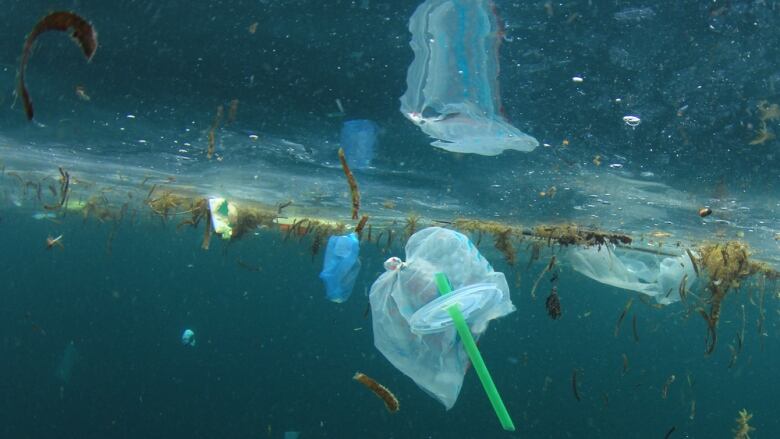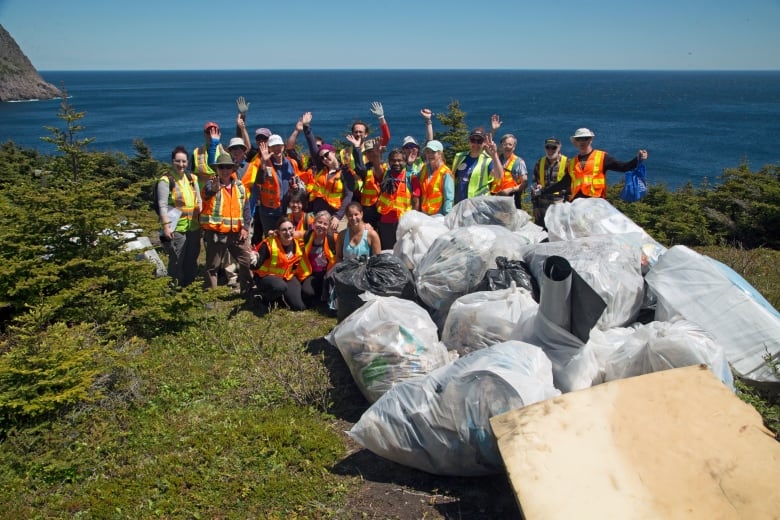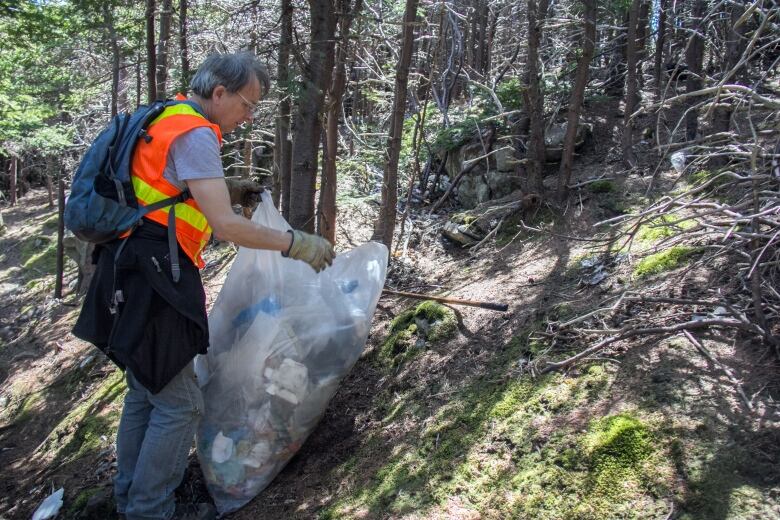The biggest source of ocean plastic may not be what you think
Volunteers collect a literal tonne of garbage along the East Coast Trail

The East Coast Trail along Sugarloaf Mountain is not like the scenic views Newfoundland is known for. The trees here are covered top to bottom in garbage mostly plastic.
Frequent hikers know that this portion of the trail borders the Robin Hood Bay Waste Management Facility. The wind picks up loose garbage and strews it around the site.
On a recent weekend, two dozen volunteers organized by the East Coast Trail Association rolled up their sleeves and collected over 100 industrial-sized garbage bags of trash from the area.
In total, the trash collectedweighed over a metric tonne.

"We found a lot of plastic. You know, grocery store bags, a lot of foam, Styrofoam, and food product bags chip bags, bread bags, a lot of food products," said volunteer Josh Kane, who instigated the cleanup.
With ocean plastic pollution reaching critical levels, environmental concern was one of the main motivations for this cleanup.
The waste management facility is right by the ocean, so it's not a leap to imagine some of the garbage escapes the trees and ends up in the water.
"Eventually it will make its way to the ocean. It starts in the landfill, comes down through the trees, across the trail and eventually out over the bank into the ocean," said Pat Ryan, the East Coast Trail Association's vice-president of trail maintenance.
Stop plastic at the source
Max Liboiron, an assistant professor at Memorial University who studies ocean plastics,said the landfill is doing all itcan to mitigate trash escape.
In addition to netting the dump trucks and landfill perimeter, the facility tops the garbage with soil once per week and organizes their own forest cleanups.
Plastic will always, always escape.- MaxLiboiron
Liboiron explained that no matter how much we do, "plastic will always, always escape."
"No matter what physical measures are in place, plastic bags will fly out of the landfill, especially here," said Liboiron.
Liboiron said cleanup efforts are worthwhile and get the conversation going, but they focus on where plastics end up rather than where they come from. Instead, we should be cutting off the stream of plastic at the source.
Fishing gear, cigarette butts big sources of plastic
Liboiron's research found that plastic bags are a relatively small problem in Newfoundland and Labrador when compared to discarded fishing gear and rural sewage outflows. Out in Fogo Island, for example, she found that 80 per cent of ocean plastic is related to fishing. She suggests that these are the areas Newfoundlanders and Labradorians should focus on.

"Activities to move to septic tanks instead of sewage outflows in rural communities would be important, as would programs for disposing of worn fishing gear and for collecting lost or derelict fishing gear would both impact some of Newfoundland's most plentiful marine plastics."
On land, discarded cigarette butts are the main source of plastic pollution.
Dana Griffiths, an East Coast Trail Association volunteer, offered another piece of simple advice: hike the trail. Take a look at the volume of trash marring the view, and participate in a cleanup.
"The people that leave here are not the same people that came here this morning," said Griffiths. "They'll be advocates for less waste, for sure."












_(720p).jpg)


 OFFICIAL HD MUSIC VIDEO.jpg)
.jpg)



























































































